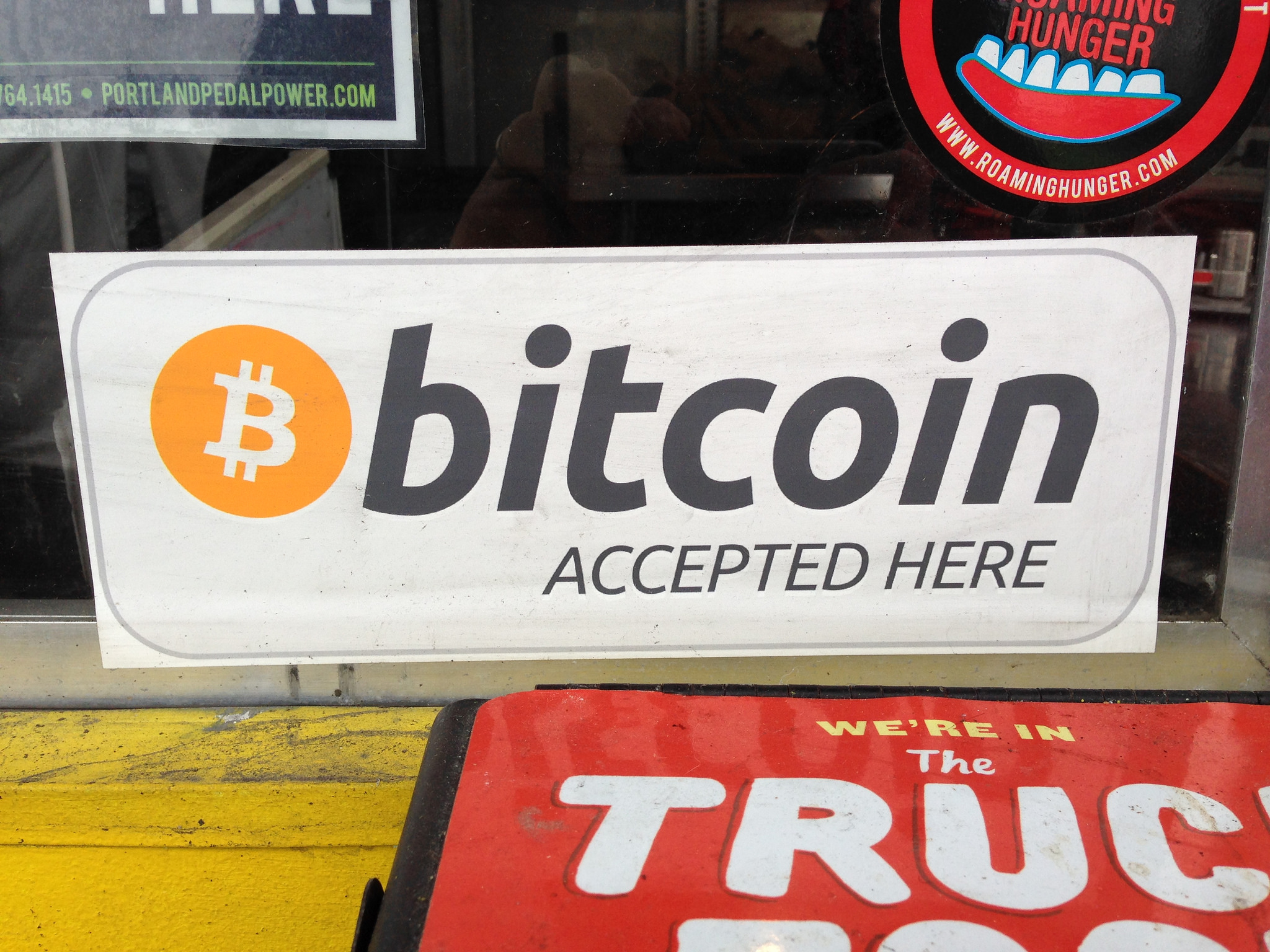The digital currency comes with both risks and rewards.
WASHINGTON – Imagine stepping into a cafe where you’re worried they don’t take credit cards. But while you’re painstakingly counting out your dollars, the cashier says: “We take cash, cards and bitcoin.”
That’s what’s happening every day at Oh Yeah! Ice Cream & Coffee. And the small eatery in Pittsburgh isn’t the only one offering an expanded range of payment options to its customers.
Bitcoin, created in 2009, is a form of digital currency that can be exchanged via an electronic device like a smartphone. According to bitcoin payment processor BitPay, more than 100,000 businesses globally have opted to accept bitcoin as a payment method, and many of them are small businesses.
The most important characteristic of bitcoin, making it different from conventional currency, is that it’s decentralized – no institutions control the money network. Users can store, spend and receive bitcoins by using virtual bitcoin “wallets,” offered through services like BitPay or Coinbase. These wallets help convert dollars, euros, or other currencies into bitcoins.
Users can get bitcoins from a bitcoin exchange – a platform similar to a stock market where Bitcoins can be bought with conventional currencies. People can also receive bitcoins directly from other bitcoin users.
Getting rid of middlemen and higher fees can spur small businesses to jump into the bitcoin community. Unlike big companies, mom-and-pop stores often don’t have the negotiating power to bargain with credit card companies like Visa and MasterCard, which charge merchants a percentage of payments made using the cards, said Bruce Fenton, executive director of the Bitcoin Foundation, a Washington-based nonprofit that focuses on Bitcoin advocacy and education.
“Now with an electronic device, you can make payments easily with low or even zero transaction fees,” Fenton said in a phone interview.
Lee Marburg, founder of CoinsForTech – an Australia-based, bitcoin-only online electronics store that ships to more than 60 countries – said his operation saved $17,000 in fees alone last year. “We processed over $500,000 in transactions and paid nothing in processing cost,” he said.
Having money on hand is often critical to small businesses’ survival. Compared with credit card transactions, which can take several days to show up in merchants’ accounts, bitcoin payments can be in their electronic pockets in just a few hours.
But for merchants, the convenience of bitcoin isn’t limited just to the relative speed of the transaction or to lower fees. As a nationless currency, bitcoin also breaks down invisible borders, making international transactions easier.
“We ship all around the world. That was one thing appealing with bitcoins,” said Kenny Spotz, a spokesman for Mount Baker Vapor, a U.S.-based online vapor shop that recently started accepting bitcoins for electronic cigarettes and similar items. “We can do international transactions much more efficiently now. Consumers can make payments anytime, anywhere and we can get the money instantly.”
Some business owners also accept bitcoins because they want to push it toward being a widely accepted currency, instead of being viewed simply as an investment, like a stock.
“We want to encourage bitcoin owners to use their bitcoins in daily life. That’s why we accept bitcoins in our store,” said Ethas Cloy, founder of Oh Yeah! Ice Cream & Coffee.
To most small merchants, though, the biggest reason to accept bitcoin is to utilize it as a marketing tool to attract new customers, especially young people.
Kevin Rezvani, owner of Diesel & Duke – a small restaurant in New Brunswick, New Jersey, which is home to a Rutgers University campus – decided to accept bitcoin after some student customers asked for it.
“This is a small town – once you start accepting bitcoin, people will know it very quickly,” Rezvani said.
However, Diesel & Duke saw only two bitcoin transactions in the past two years, showing that even though bitcoin may be becoming an “in” thing, most customers still don’t understand what it is.
“There are not so many new customers unless you are in a really niche area where there are already quite a lot bitcoin users,” Fenton said. “Therefore, in most cases, your profit is not likely to move that much.”
Along with the potential for a scarce customer base, security concerns can also pose barriers to businesses seeking to adopt it as a payment method. Last year, for example, Japanese bitcoin exchange Mt. Gox reportedly lost around $400 million worth of bitcoins, with blame initially falling on hackers but some suspecting an inside job. The exchange shut down and filed for bankruptcy
Such issues can contribute to bitcoin’s already notorious price volatility. In 2013, the value of one bitcoin increased to more than $1,000 from $13. Now, it’s dropped back to less than $300.
“Bitcoin, just like any other commodity, is based on the number of buyers and sellers out there,” Fenton said. “If somebody were to dump their bitcoins, that would definitely affect the bitcoin price.”
To keep businesses from possible crashes, small companies instantly convert most of their bitcoin revenue to local currencies.
“At this moment, it is too volatile to use as a store of value for all of our business assets,” Spotz said. “Because of this, we only keep 15 percent of revenue generated by bitcoin in bitcoin, and we converted the rest of them to U.S. dollars at the point of sale.”


